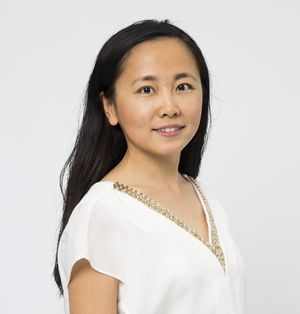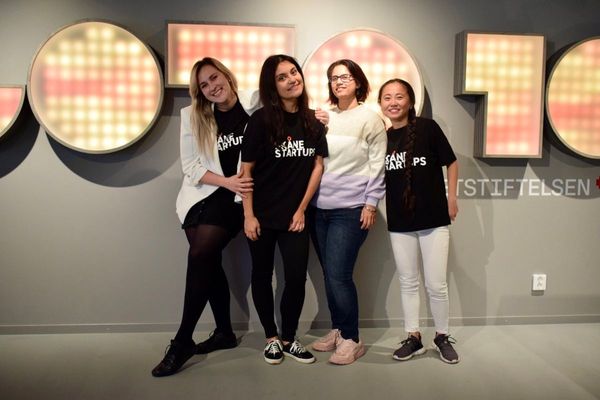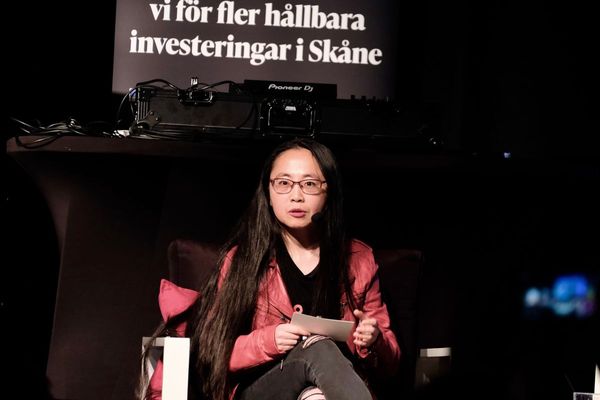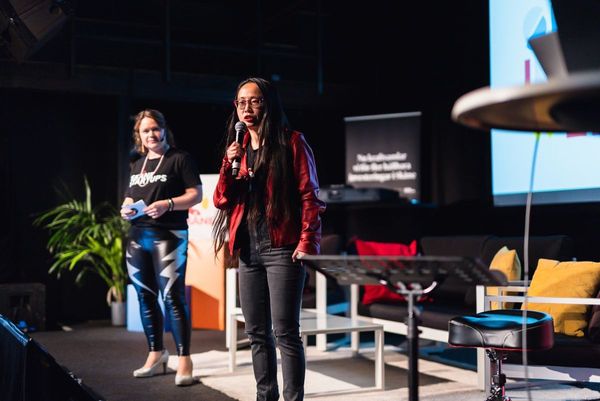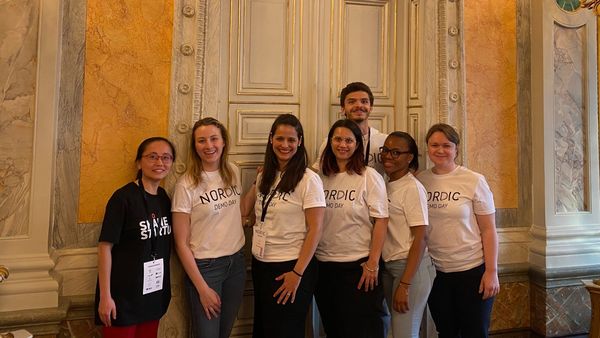I have been following the MEST Africa Challenge and I would like to share with you the summary of the startup pitches from Nigeria. I’ve edited some of the pitches but I’ve kept the original message.
Gradely is one of the most exciting startups in this batch of selected startups. They have not only received quite some traction, especially due to the COVID-19 time, but one of the founding team members has built a successful business earlier with over $ 1 million in yearly revenue.
In this batch, I am not sure about the feasibility of Scrapays’s business in Nigeria. But feel free to share with me your insight!
1, Social Lender
https://www.sociallenderng.com/
It is a digital financial services platform that enables financial institutions, such as banks, to extend financial services to the unbanked people in our society, for example, people who have access to the internet and who live remotely. In Nigeria, there are over 10 million people who can get access to formal financial services. For a country with a population of over 120 million, there are only around 16 million people who have a bank account which means more than 50% of the population are financially excluded.
The Social Lender looks at each social connection both online and offline and gives each individual a social reputation score. The individual needs to provide additional social collateral and social guarantors, if the individuals are eligible for a cash request, then Social Lender will lend them cash. Currently, individuals can get access to their services through Web, SMS, USSD, and Internet Banking. In addition to lending, Social Lender has built a network of Ambassadors and Local Guides who provide offline guidance to the financially excluded, and deliver financial literacy and education.
2, Sycamore Integrated Solutions
In Nigeria, SMEs contribute significantly to employment and the national GDP. SMEs need to be supported for economies to grow and to move forward. One problem that SMEs face in Nigeria is that it is extremely difficult to access readily available finances. The reasons include high-interest rates, cumbersome paperwork, length requirements, and also stringent collateral requirements.
There are approximately 41.5 million micro-businesses and SMEs facing these problems in Nigeria. 73K small and medium enterprises with less than N100m turnover, 41.4 million micro-businesses with less than N20m turnover. Sycamore provides a peer-to-peer lending solution that connects credible borrowers and savvy lenders over an online marketplace. Credible borrowers can register on the platform, and we have a unique underwriting process and algorithm, once approved, this information will be shared with lenders for review. There are $2.2 billion lending opportunities in Nigeria and we aim to attract 5% of the Lagos market within three years. With the predominant use of an inside sales business model to obtain leads, we have been able to register about 2000 customers.
3, TOJU
58 million adults in Nigeria are financially underserved. According to the Gates and Melinda Foundation, 60% of people in Nigeria still use informal financial services. The reasons include the low level of literacy, limited access to the internet, unavailable banks or financial institutions in the region, and high transaction fees.
In the informal financial service space, the players can be categorized into the following: nonbanking microfinance institutions, registered institutions with marketers as mobile agents and offering group/cooperative services; mobile local agents, such as thrift collectors, AJo, ESUSU, these are individuals moving from house to shop, collecting daily contributions from most micro-small businesses and fulfilling withdrawals for them at month’s end; cooperatives, groups of individuals in an organization which put in shared capital and withdraw in turns, usually in a monthly cycle.
However, there are challenges with information financial service solutions, such as long reconciliation time, poor records, high expenses for CRM, and low liquidity. Therefore, we created Toju, a record management tool, and a financial service toolbox for thrift collectors, cooperatives, and local saving clubs.
According to the Association of Non-Banks Microfinance Institutions, there are in total 704,000 thrift collectors that serve the information sectors, and 422,400 thrift collectors in the top 10 commercial states. For example, Tomi is a mobile local agent serving 120 micro-SMEs, collecting cash from them, and recording their transaction details via writing in the customers’ and her booklet. There are potential errors, data retrieval is challenging, reconciliation takes an average of 90 minutes per day, and she can not fulfill her client’s demand for loans due to simultaneous withdrawals. After using the Toju App for 4 months, Tomi has onboarded 52 more customers, given out 350K NGN more loans, and transacted above 1 million NGN ($2,589).
The business model is a monthly subscription. We charge N2,000 (5 USD) per agent and we charge 5% monthly interest from informal solo agents. In 6 months of our operation, we onboarded 40 agents, served 4,834 micro-SMEs, distributed $54K, and earned $1,800 monthly recurring revenue. We are now seeking $150,000 and aim to onboard 5000 agents and engage 750,000 micro-SMEs in the next 9 months.
4, IderaOS
The population of Nigeria is 201 million, the economic market size is $13 billion, the mobile penetration is 84% and there are 38 million SMEs which account for 84% of jobs in Nigeria. This is a perfect market condition for the e-commerce boom and largely uncharted territory for digital services. Our software ListBuy allows small businesses to open an online store, sell, and get a smart insight into their business.
Between September to January 2019, our team built a prototype to test the idea and launched the product with over 100 businesses signed up. During March and April 2020, 200 merchants signed up, we launched version 2 of ListBuy and partnered with 3 logistic companies. By June 2020, we’d hit over $1,000 in commission and grew to 800 merchants.
5, Gradely
200 million African students are in school but are not learning. The root cause is the learning failure compound over time. What if the education system can identify a student’s problems much earlier? Gradely is harnessing the power of data and artificial intelligence to help schools and parents intervene in real-time to children’s learning gaps.
For students and parents: the students take homework and practice; our systems recommend relevant exercises based on students’ learning skills and levels daily; the parents can get real-time feedback on learning progress. We charge $5 per month on content subscriptions (practice and video lessons), and $7 per on-demand tutor sessions.
For schools: they just need to set up classes, use AI-assisted assessment, and view students’ reports. We charge a $15 subscription per student per year and $50 for the premium subscription.
Since our launch in 2019, we have grown 120% month on month. Currently, we have $5,000 monthly revenue, 250 paying parents, and 4 paying schools. By Q4 2020, we estimate the company revenue to be $155,000, with 2500 paying parents and 150 paying schools.
6, Padimi. co
Over 150 million Nigerians have no form of social security, which means low access to the financial service market, low access to healthcare, and low adoption of insurance coverage. 80% of people in Africa lack social security because governments do not pay enough attention to the bottom of the pyramid. Here are some important statistics that you should know.
- 36.8% of the adult population are financially excluded and 60.1 million people are unbanked.
- 54% of the 190 million Nigerians have a low financial literacy level
- The current life expectancy of the average Nigerian is 52 years and Over 85% of the population is living without health insurance
- High reliance on pocket pay healthcare system and over 70% of Nigerian poor insurance literacy culture
Padimi is a social enterprise trying to bridge a gap or social security in Africa by providing a Fintech solution. We offer a monthly subscription from $6 to $22 per month for our insurance products.
7, Scrapays
Over 85% of recyclable materials produced are not recovered while waste generation is expected to quadruple over the next three decades with Nigeria having the fastest rate in Sub-Saharan Africa. Scrapays connects waste producers (individuals and enterprises) with independent recyclable material collection businesses so they can dispose of their sorted waste efficiently with a return. The community is powered by hosts who have access to spaces, they provide collection outlets allowing for wide decentralization of collectors.
8, At Your Service
AtYourService is a tech-enabled human resource platform that helps companies operating in Africa to easily recruit the right talent for part-time and full-time roles. We focus on helping each organization find professionals who match their immediate needs incompetence, attitude, and cultural fit. One company matters because of Africa’s job challenges:
- More than 30% of the African youth population is unemployed. In Nigeria, over 23% of the working population can not find jobs, and 20% of those with jobs are grossly underemployed;
- Inadequacies of education curricula in most African nations have created a wide skill gap in today’s labor market
- The right talents are hard to find for a large number of organizations
Our HR platform makes it easier for recruiters and employers to search, find, and hire the right talents. The system collects all the relevant information about the job seeker. Each job seeker has access to streamlined educational content for core job skills.
With local and international competitors such as SeamlessHR, Workforce Group, Jobberman, Indeed, Workable, and Greenhouse, we stand out because:
- Our platform’s big asset is our pre-recorded video interviews that reduce physical interviews;
- Our platform helps talents acquire verifiable skills and become easier to hire;
- Our project management capabilities have increased repeat services;
- Without the platform, recruiters can perform immediate hires with a simple search;
In 2018, there were over 705 million people of working age in Africa. By 2030, there will be nearly 1 billion of them. Our company is projected to have a 5% market share of $101.11 million in serviceable obtainable markets. In the last 20 months, we have over 100 corporate and individual clients across our part/part-time and full-time recruitment offerings; over 4000 direct users comprising full-time and part-time talents; and total sales revenue of $185,000.
We charge a one-time fee (10% of the agreed annual salary for the new hire) from the recruiter; we also charge 10% of the total cost for outsourced projects and the percentage of revenue earned by our education partners. Within a year, we aim to onboard 100,000 users, make 15,000 job connections, and earn $2.2 million in revenue.
9, Edusko
It is essentially a Craigslist of all the schools in different countries in Africa. Parents can browse the school information and send in their children’s applications through their website.

